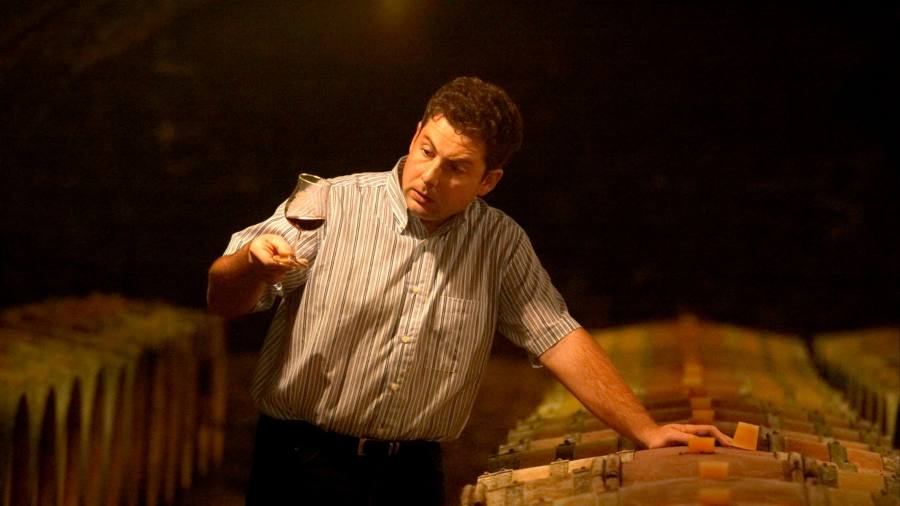Receive free Life & Arts updates
We’ll send you a myFT Daily Digest email rounding up the latest Life & Arts news every morning.
I live near the old home of — now a museum devoted to — John Keats. His poems are too soulful and nature-smitten for as arid a man as me. But one phrase he invented is ever useful. “Negative capability”. It appears in his letters, not his verse, and means a tolerance for “uncertainties, mysteries, doubts”. If you are “content with half-knowledge”, instead of seeking clarity and order all the time, you possess negative capability. He used the term in praise of Shakespeare, who never tells us how to live and whose characters remain enigmas.
The wine of Burgundy is testing my negative capability. It rivals travel as my biggest financial outgoing after housing. More to the point, it rivals language-learning as my biggest cognitive drain outside of work. The world’s most complex wine region is a farrago of small producers, ambiguous climate, the temperamental pinot noir grape, baroque classification rules, the vagaries of inheritance (a master can bequeath to a fool) and adjacent vineyards of appreciably different character.
These ultra-local variations can be overstated. Burgundian discourse is prone to pre-scientific mumbo jumbo. (Look up the great “minerality” debate.) But the specifics of terroir and technique do count. And the region has managed to keep these up in a nation with a strong intellectual bent towards standardisation.
So why do I bother? Why not revert to the ancient British taste for Bordeaux? Not out of any refinement on my part. I have a palate as delicate as a cow’s rump. No, the attraction of Burgundy lies precisely in not being able to fathom it. In its lack of pattern and predictability, it is the wine that most closely simulates the experience of living.
Looking around, all the best things are ambiguous. My favourite cities are the least planned. So is the world’s favourite sport.
With the new season about to start, I think I understand better now why football is near-universal. It is the least structured of all sports, and therefore the truest to life. It is not broken down into sets, serves, pitches, overs, frames, laps, holes or other pre-arranged units. Basketball comes somewhere close in its fluidity, but takes place on a smaller surface with fewer players, so the permutations are less. And, because football is so low-scoring, randomness is a huge element. It is possible to do nothing wrong and lose. Remind you of something?
The glory of vagueness is everywhere, even in matters of the heart. Some of the most memorable romances fall into that grey zone between one-night tryst and relationship. These tend to last long enough to allow for rapport, and perhaps a weekend break in Rome, but not long enough for boredom to set in. Much of the sex in a modern western nation happens in these hard-to-place couplings, but we have no term for them, or at least none that isn’t too profane or asinine to accord them dignity. (“Situationship”, a recent coinage on social media, is used by that genre of person who eats brunch.)
The intellectual trend of the past century or so has been an embrace of disorder. There is a nice scene in Oppenheimer where he takes delight in the uncertainties of the quantum world after two centuries of Newtonian structure. At the same time, or thereabouts, the Cubists were painting from many perspectives, not just one. Jazz was breaking with recognisable musical form. Literature was losing its shape under Proust and Joyce.
The connecting idea here was that life itself doesn’t obey formal patterns, so why should art? It is a revolution we call “modern” or “modernist”. But vine-tending Benedictine monks had been applying it in a region of eastern France the better part of a millennium earlier. The wine that comes out of there can still taste of contradictory things all at once and, to a newcomer, of nothing at all.
In I Drink Therefore I am, a gimmicky name for a deep book, the philosopher Roger Scruton almost persuades me that claret is better. The great commercial houses of Bordeaux have the logistical wherewithal to ensure a higher minimum standard. But life isn’t Bordelais. It isn’t Tuscan or Californian. In its power to confuse and disappoint, it is Burgundian. There are more certain drinking experiences to be had, for lower prices, at much less intellectual effort. But which poet ever exalted positive capability?
Read the full article here




